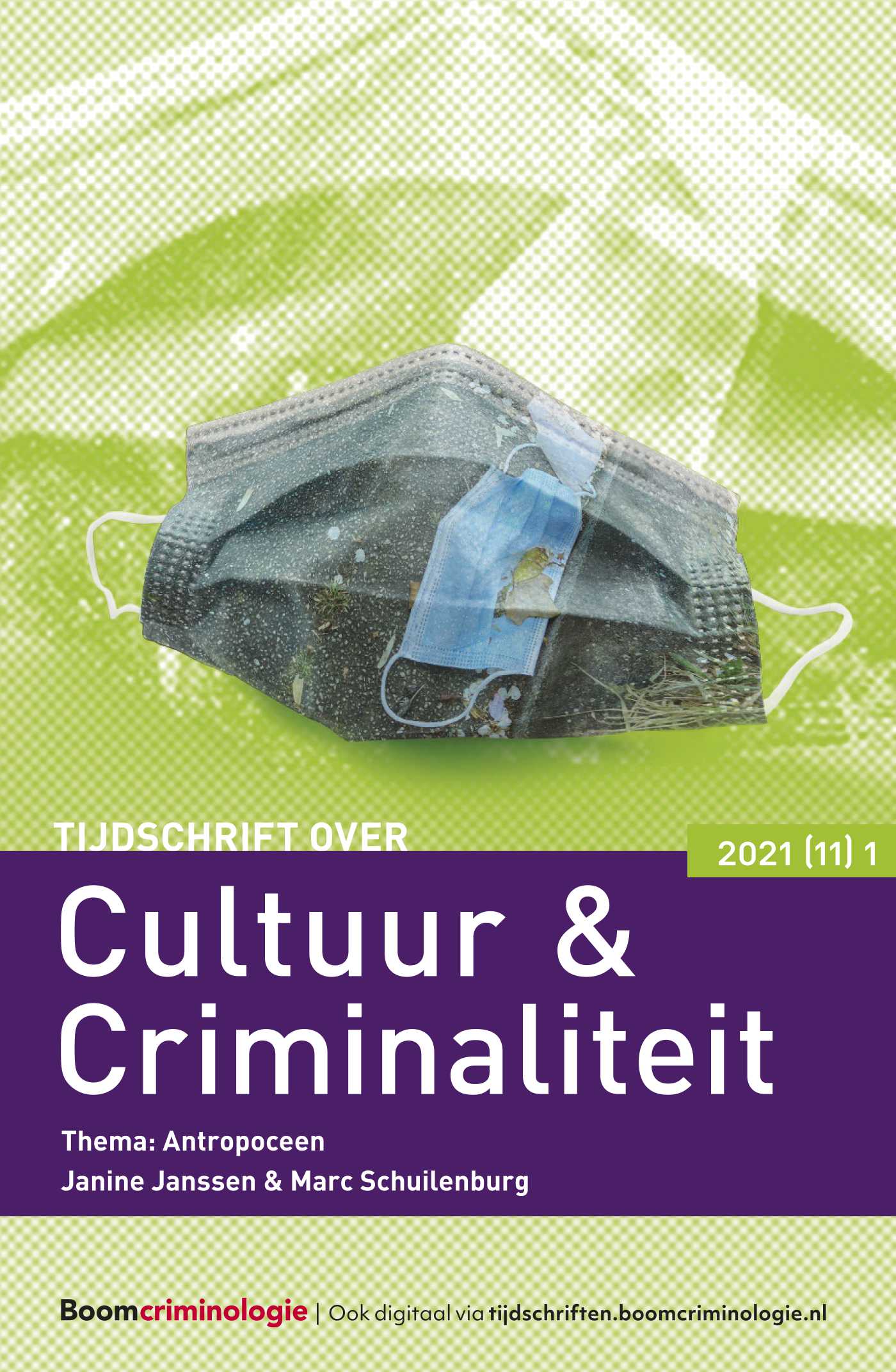|
In the introductory article of this special issue on the downfall of popular heroes, some relevant aspects in relation to the general theme are explored. Who are considered to be heroes and which elements are relevant to understand the process heroes may go through when they start sliding on the slippery slope, and, eventually, fall into the abyss of disgrace? What is the role that (social) media play in the demolition of their reputation and how do heroes perceive their own downfall and respond to it? The theoretical concept that is used in this article is Howard Becker’s master status and, in particular, the notion that the master status of a fallen hero surpasses and contaminates all other statuses, previously possessed by an individual. |


Tijdschrift over Cultuur & Criminaliteit
Meer op het gebied van Criminologie en veiligheid
Over dit tijdschriftMeld u zich hier aan voor de attendering op dit tijdschrift zodat u direct een mail ontvangt als er een nieuw digitaal nummer is verschenen en u de artikelen online kunt lezen.
| Artikel |
De mooie held geveld |
| Trefwoorden | heroes, downfall, master status, media |
| Auteurs | Prof. dr. Hans Nelen en Dr. Frank van Gemert |
| SamenvattingAuteursinformatie |
| Artikel |
Een held valt niet – morele dilemma’s als een gevierde insider in de fout gaat |
| Trefwoorden | hero, moral entrepreneur, Bill Cosby, Jimmy Savile, Gerrit Achterberg |
| Auteurs | Dr. Frank van Gemert en Danaé Stad MSc |
| SamenvattingAuteursinformatie |
|
Bill Cosby, Jimmy Savile and Gerrit Achterberg lived in different periods, in the US, UK, and the Netherlands. They were heroes because of what they accomplished during their professional careers but all three turned out to have committed serious crimes. Disclosure is painful, not only for the hero who comes to fall but also for the community that finds itself redefining moral standards when losing a celebrated insider. For this reason, the crimes of these three men have been concealed and kept secret for years. In comparing the three cases, this article tries to find out who decides on keeping the hero on his feet, how this is done, and if this changes over time. |
| Artikel |
Gevallen helden van bedrijfsleven en openbaar bestuurDe ‘fall from grace’ van witteboordencriminaliteit |
| Trefwoorden | white-collar crime, status degradation, sanctioning, executives, punishment |
| Auteurs | Prof. dr. Wim Huisman en Drs. Dennis Lesmeister |
| SamenvattingAuteursinformatie |
|
In criminology, it is generally assumed that the high social status of white-collar offenders prevents them of being targeted by criminal law enforcement. But when they do, they suffer greater social and economic damage because of this high social status. Empirical research on the consequences of criminal law enforcement and conviction for white-collar offenders is scarce, and limited to the US and the UK. This paper used biographies of convicted former executives in business and public office in the Netherlands, to analyse these consequences and the process of the ‘fall from grace’ of white-collar offenders. The consequences are described in four life-domains: health, the private sphere, the occupational sphere and the social sphere. The results show that Dutch executives, in line with findings for the Anglo-American white-collar offenders, experience status degradation and suffer much collateral damage of criminal law enforcement. After the initial horror of imprisonment, they endure prison life fairly well. Individual competences and remaining social and economic capital enable them to return to normal life, although they cannot return to pre-conviction levels of social status. |
| Artikel |
Gevallen helden en geheugenoorlogen in voormalige Sovjetstaten |
| Trefwoorden | collective memory, memory-wars, Soviet heroes, nationalism, nostalgia |
| Auteurs | Prof. dr. Dina Siegel |
| SamenvattingAuteursinformatie |
|
The relocation or destruction of the monuments of Soviet heroes in our times is in fact a process of replacement of one myth by the other. The commemoration of historical events has become the subject of struggle and manipulation of political power. The Soviet era is today the subject of divergent interpretations, ranging from nostalgia to denial, depending on the cultural, ethnic and socio-economic context in which these memories take place. In this article the processes are analysed, in which Lithuanians and Georgians change the meaning of symbols of their past in the attempt to redefine history and determine the fate of their fallen heroes. |
| Artikel |
De val van Jacobus Capitein en het debat over omstreden koloniale helden |
| Trefwoorden | Jacobus Capitein, Atlantic history, Dutch history, slavery, postcolonialism |
| Auteurs | Dr. Karwan Fatah-Black |
| SamenvattingAuteursinformatie |
|
The post-colonial re-evaluation of prominent figures in Dutch history has been resisted fiercely in the public sphere. This article raises the question how lives from the colonial era that are a source of national pride, but are also tainted by their implication in the history of slavery, colonialism and racism can be presented in a way that does justice to their historical context. Jacobus Capitein, who was first enslaved and later became an advocate for slavery in the 1740s, was initially regarded a hero in the eighteenth century, but has received a far more critical evaluation since the second half of the twentieth century. This article takes the way in which professional historians and heritage institutions have dealt with the complex and layered life story of Jacobus Capitein as a model for approaching the lives of the canonical figures of Dutch Atlantic history. |
| Significant others |
|
| Auteurs | Prof. dr. Hans Nelen en Prof. dr. Richard Staring |
| Auteursinformatie |
| Doka |
Met de schrik vrij |
| Call for papers |
Tijdschrift over Cultuur & Criminaliteit |

